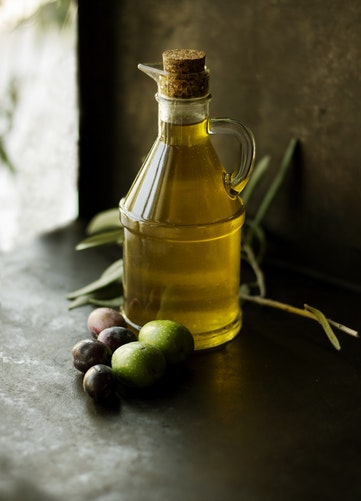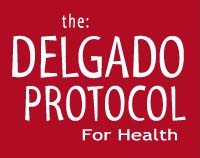Olive oil and coconut oil have garnered widespread popularity as health foods – but don’t buy the hype. Read-on to discover the truth about these oils, and why you should eliminate all oils from your diet.
Olive Oil
 Olive oil gained popularity as an alleged health food primarily because of observational studies on the Mediterranean diet. Researchers noticed that the Mediterranean diet contained large amounts of olive oil, and the people consuming that diet had a low rate of heart disease.[i] Crediting olive oil for the Mediterranean’s heart health fails to take into account the fact that the diet contains an abundance of fresh fruits and vegetables, as well as beans and legumes, wholegrains and lean protein. This high fiber, high wholefoods, low red meat diet, would result in heart health with or without olive oil, and consuming large amounts of olive oil as part of an unhealthy diet, would fail to produce the same beneficial effects.
Olive oil gained popularity as an alleged health food primarily because of observational studies on the Mediterranean diet. Researchers noticed that the Mediterranean diet contained large amounts of olive oil, and the people consuming that diet had a low rate of heart disease.[i] Crediting olive oil for the Mediterranean’s heart health fails to take into account the fact that the diet contains an abundance of fresh fruits and vegetables, as well as beans and legumes, wholegrains and lean protein. This high fiber, high wholefoods, low red meat diet, would result in heart health with or without olive oil, and consuming large amounts of olive oil as part of an unhealthy diet, would fail to produce the same beneficial effects.
Some may counter this argument by pointing out that olive oil contains monounsaturated fats, and researchers have found that these fats result in lower LDL cholesterol levels. However, if you take a closer look at the studies, you’ll notice that the lower LDL levels resulted from a comparison of the effects of a diet high in monounsaturated fats to a diet high in saturated fats.[ii] Naturally the diet high in monounsaturated fats would result in lower LDL cholesterol levels than the diet high in saturated fats, but just because something isn’t as unhealthy, it doesn’t make it healthy.[iii][iv]
Coconut Oil
 Coconut oil gained popularity as a health food when a professor at Columbia University published studies showing that eating and cooking with medium chain fatty acids, or MCTs (a type of molecule found in coconut oil), helped dieting adults burn fat. Study participants were fed specially prepared meals that were either rich in MCTs or rich in long chain fatty acids (LCTs) for four weeks. The MCT group burned more energy and had reduced overall fat levels at the end of the study.[v]
Coconut oil gained popularity as a health food when a professor at Columbia University published studies showing that eating and cooking with medium chain fatty acids, or MCTs (a type of molecule found in coconut oil), helped dieting adults burn fat. Study participants were fed specially prepared meals that were either rich in MCTs or rich in long chain fatty acids (LCTs) for four weeks. The MCT group burned more energy and had reduced overall fat levels at the end of the study.[v]
Assuming that coconut oil would produce the same beneficial effects is flawed logic because coconut oil only contains 14 MCTs and the study participants received 100 MCTs. Also worth noting is the fact that a panel of researchers examined the studies connecting MCT with weight loss, and they concluded that the evidence is weak and unconvincing and there is no proof of a cause-and-effect relationship.[vi]
Another reason why coconut oil became revered as a health food, is because population studies showed inhabitants of the South Pacific ate diets rich in coconuts, and they have lower rates of vascular disease then Western societies.[vii] However, there is no solid evidence that the coconut is responsible for the low prevalence of heart disease. It’s far more likely that the enhanced heart health is due to a nutrient dense, wholefoods-based diet and more active lifestyle. Also, coconuts are consumed primarily in their whole form in the traditional South Pacific diet, and it’s always healthier to consume a whole food with its fiber intact then to consume its extracted oil.
The Problem with Oils
 While olive oil and coconut oil may be slightly less toxic then other vegetable oils, they are unhealthy nonetheless. Excess oil of any kind increases triglyceride and blood sugar levels, and causes the red blood cells to clump-up and stick together. When you consume oils, it thickens the blood and can reduce circulation throughout the body by as much as 30. [viii] The reduced circulation can lead to brain fog, fatigue, and dizziness (to name a few), and can increase blood pressure, heart disease and stroke risk. [ix][x]
While olive oil and coconut oil may be slightly less toxic then other vegetable oils, they are unhealthy nonetheless. Excess oil of any kind increases triglyceride and blood sugar levels, and causes the red blood cells to clump-up and stick together. When you consume oils, it thickens the blood and can reduce circulation throughout the body by as much as 30. [viii] The reduced circulation can lead to brain fog, fatigue, and dizziness (to name a few), and can increase blood pressure, heart disease and stroke risk. [ix][x]
Another problem with oils is that they’re extremely calorie dense — they contain a whopping 120 calories per tablespoon. Most Americans already consume too many calories and the excess caloric intake from oils can easily lead to weight gain. Oils are also the most concentrated source of dietary fat, containing 14 grams of fat per tablespoon. Every time you consume a high fat meal, it impairs your endothelium function (the inner lining of blood and lymph vessels), and when your endothelium are unhealthy, you are unhealthy.[xi]
Considerations
If you want to be optimally healthy, enhance your energy, lose weight, and reduce your chronic disease risk, you should consume a low-fat, plant-based diet. You don’t need to avoid fats completely (they play many essential roles in your body), but you do need to choose wisely. Wholefood-based fats such as avocados, seeds, nuts, olives and coconuts are healthful in moderation, but trans fats and the saturated fats found in animal products should be avoided. If you choose to consume oil, limit your intake to a maximum of 1 teaspoon per day, and if possible, consume the oil with high fiber foods.
*A healthy diet does not have to be boring, and it will be a lot easier to commit to one if you include a wide variety of flavorful recipes in your daily meals. For delicious and easy health promoting recipe ideas: http://www.delgadonaturals.com/books-and-media/
[ytp_video source=”YbICI8Cxl_U”]
How to become Diabetic in 6 hours https://www.youtube.com/watch?v=3igKW6bl3FE&list=PLVLgBR3AfFG_MtN0fUCoxn9V12FH88LZz
Reverse Cellular Aging with Oil-free Vegan Diet https://www.youtube.com/watch?v=3EqNsyIyns4
Brain Fog https://www.youtube.com/watch?v=j3y76GRdli8&index=3&list=PLVLgBR3AfFG_MtN0fUCoxn9V12FH88LZz
Live and Dry Blood Analysis II
Adrenal Fatigue Discovered – Miraculous Results https://www.youtube.com/watch?v=kfwb9h_u9f0&list=PLVLgBR3AfFG_MtN0fUCoxn9V12FH88LZz&index=2
[i] https://www.health.harvard.edu/staying-healthy/the-truth-about-fats-bad-and-good
[ii] https://www.health.harvard.edu/staying-healthy/the-truth-about-fats-bad-and-good
[iii] https://www.pritikin.com/your-health/healthy-living/eating-right/1103-whats-wrong-with-olive-oil.html
[iv] http://ajcn.nutrition.org/content/70/6/1009.long
[v] http://onlinelibrary.wiley.com/doi/10.1038/oby.2003.53/epdf
[vi] http://onlinelibrary.wiley.com/doi/10.2903/j.efsa.2011.2240/pdf
[vii] https://www.ncbi.nlm.nih.gov/pubmed/7270479?dopt=Abstract
[viii] https://www.youtube.com/watch?v=3EqNsyIyns4
[ix] https://www.youtube.com/watch?v=j3y76GRdli8
[x] https://www.youtube.com/watch?v=3igKW6bl3FE&list=PLVLgBR3AfFG_MtN0fUCoxn9V12FH88LZz
[xi] http://atvb.ahajournals.org/content/atvbaha/25/2/406.full.pdf





